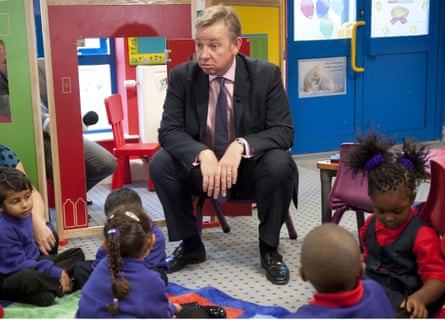Sweden has declared a “system failure” in the country’s free schools, pledging the biggest shake-up in 30 years and calling into question a model in which profit-making companies run state education.
Sweden’s friskolor – privately run schools funded by public money – have attracted international acclaim, including from Britain, with the former education secretary Michael Gove using them as a model for hundreds of new British free schools opened under David Cameron’s government.
But in recent years, a drop in Swedish educational standards, rising inequality and growing discontent among teachers and parents has helped fuel political momentum for change.
A report by Sweden’s biggest teachers’ union, Sveriges Lärare, warned in June of the negative consequences of having become one of the world’s most marketised school systems, including the viewing of pupils and students as customers and a lack of resources resulting in increased dissatisfaction.

The union demanded the phasing out of for-profit and marketised schools and in the meantime that they reinvested any profits in their businesses. “Joint-stock companies are not a long-term sustainable form of operation to run school activities,” it said.
Now Lotta Edholm, a Liberal who was appointed schools minister last year during the formation of Sweden’s Moderate party-run minority coalition, has launched an investigation into the issue which, she said, would oversee her plans for reform.
“It will not be possible [in the reformed system] to take out profits at the expense of a good education,” she told the Guardian at the ministry of education and research in Stockholm.
Edholm said she planned to “severely limit” schools’ ability to withdraw profits and to introduce fines for free schools that did not comply.
“It can’t be that the state pumps in lots of money so that you can improve your business and at the same time a portion of that money goes out to you as profits. That we will put a stop to,” she said.
The largest profits were made by upper secondary schools, known in Sweden as gymnasieskola, she said. “There it has been easier to make profits through having bad quality.”
There are thousands of friskolor – directly translated as “independent schools” but known as “free schools” – across Sweden, with a higher proportion in cities. About 15% of all primary schoolchildren (six- to 16-year-olds) and 30% of all upper secondary school pupils (16- 19-year-olds) go to a free school.
Edholm said she could not put a number on how many schools were experiencing these issues but said the problem lay in the system itself. “It’s not just a problem that it is a number of schools, but it becomes a system failure of everything.”
She also pledged to tighten rules on religious influence on teaching in religious schools and to strengthen rules on school ownership, citing a government report that warned free schools could be exploited by Swedish and foreign owners wanting to influence society.
Edholm also accused some free schools of grade inflation, with teachers awarding children grades that were too high – creating imbalance across the whole system. It is understood to be a particular problem in free schools with a low proportion of qualified teachers and schools run as joint-stock companies.
“Free schools tend to give higher grades than municipal schools. That risks that in the end it could be that the municipal schools give higher grades, and that in turn is very bad,” she said.
“It’s unfair and it leads additionally to students thinking they are much more knowledgable than they are.”
after newsletter promotion
Before joining Ulf Kristersson’s government, Edholm was on the board of the freeschool group Tellusgruppen. When she was appointed education minister, the value of the group’s shares rose, but Edholm sold her shares and left the board.
In spite of the schools’ problems, she insisted friskolor still had an important place among Sweden’s schools, which she said offered choice without fees.
“What makes the Swedish school system exceptional is that any child can choose a school without it costing anything,” she said. “It’s important to hold on to that.”
A spokesperson for the Sveriges Lärare union said the government’s plans did not go far enough to address the problems, which it said included a school selection system that increased segregation and funding inequality.
Outside free school reform, Sweden’s schools face significant crime and security challenges as the country grapples with a national gun crime crisis, involving increasingly young children.
Edholm said access to schools, which are traditionally very open, needed to be made tighter.
“The whole of society now is in the process of changing its relationship to the terror threat but also gang crime, which is really affecting Swedish schools,” she said. “These gangs, they recruit children. And where are children? In school.”
Edholm also wants to cut down on screen time in schools and increase the number of physical books in classrooms by offering incentivising state grants for one book for each subject for each student.
Based on scientific research, she said it was “extremely questionable” that any preschool should have iPads. “It is a public health problem.”
Her legacy, she hopes, will be to introduce more “peace and quiet” in schools with less trouble, violence and bullying, as well as improving children’s knowledge.
She also wants to get more young people into engineering. “I often say Sweden is built on three things: forest, iron and engineers. That is what has built Sweden. And we’re in the process of losing the engineer bit. The sharpest minds want to become psychologists instead.”
